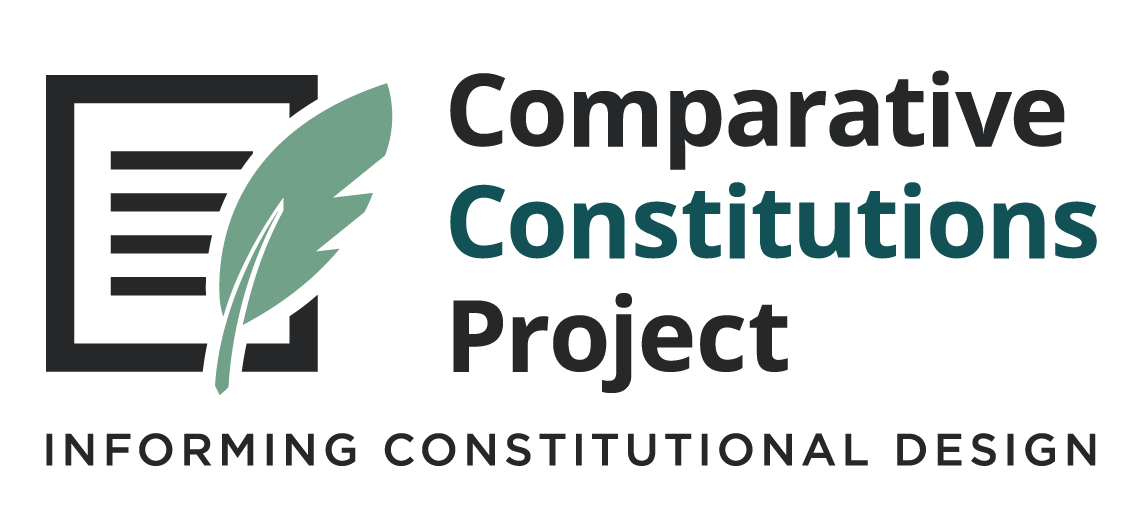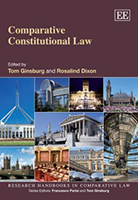Books
Books by the co-directors of the Comparative Constitutions Project
The Endurance of National Constitutions
Constitutions are supposed to provide an enduring structure for politics. Yet only half live more than nineteen years. Why is it that some constitutions endure while others do not? In The Endurance of National Constitutions, Zachary Elkins, Tom Ginsburg, and James Melton examine the causes of constitutional endurance from an institutional perspective.
Supported by an original set of cross-national historical data, theirs is the first comprehensive study of constitutional mortality. They show that whereas constitutions are imperiled by social and political crises, certain aspects of a constitution’s design can lower the risk of death substantially. Thus, to the extent that endurance is desirable – a question that the authors also subject to scrutiny – the decisions of founders take on added importance.
Read the introduction here. We hope you’ll be hooked.
Awards
Academic Reviews
▼Democracies and International Law
Democracies and authoritarian regimes have different approaches to international law, grounded in their different forms of government. As the balance of power between democracies and non-democracies shifts, it will have consequences for international legal order.
Human rights may face severe challenges in years ahead, but citizens of democratic countries may still benefit from international legal cooperation in other areas. Ranging across several continents, this volume surveys the state of democracy-enhancing international law, and provides ideas for a way forward in the face of rising authoritarianism.
Awards
How to Save a Constitutional Democracy
Democracies are in danger. Around the world, a rising wave of populist leaders threatens to erode the core structures of democratic self rule. In the United States, the election of Donald Trump marked a decisive turning point for many.
How to Save a Constitutional Democracy mounts an urgent argument that we can no longer afford to be complacent. Drawing on a rich array of other countries’ experiences with democratic backsliding, Tom Ginsburg and Aziz Z. Huq show how constitutional rules can either hinder or hasten the decline of democratic institutions. The authors contend that, in the US in particular, the Constitution’s design actually makes democratic erosion more, not less, likely. They conclude by laying out practical steps for how laws and constitutional design can play a more positive role in managing the risk of democratic decline.
Awards
Comparative Constitutional Law in Latin America
This book provides unique insights into the practice of democratic constitutionalism in one of the world’s most legally and politically significant regions. It combines contributions from leading Latin American and global scholars to provide ‘bottom up’ and ‘top down’ insights about the lessons to be drawn from the distinctive constitutional experiences of countries in Latin America.
In doing so, it also draws on a rich array of legal and interdisciplinary perspectives. Ultimately, it shows both the promise of democratic constitutions as a vehicle for social, economic and political change, and the variation in the actual constitutional experiences of different countries on the ground – or the limits to constitutions as a locus for broader social change.
Judicial Reputation: A Comparative Theory
In Judicial Reputation, Nuno Garoupa and Tom Ginsburg explain how reputation is not only an essential quality of the judiciary as a whole, but also of individual judges. Perceptions of judicial systems around the world range from widespread admiration to utter contempt, and as judges participate within these institutions some earn respect, while others are scorned.
Judicial Reputation explores how judges respond to the reputational incentives provided by the different audiences they interact with—lawyers, politicians, the media, and the public itself—and how institutional structures mediate these interactions. Garoupa and Ginsburg employ their long-standing research to examine the fascinating effects that governmental interactions, multicourt systems, extrajudicial work, and the international rule-of-law movement have had on the reputations of judges in this era.
Magna Carta and Its Modern Legacy
Magna Carta is celebrated around the world as a symbol of limited government and constitutionalism. But in 1215 Magna Carta was a failure, abrogated within months. Why then do we celebrate this piece of parchment? To mark the 800th anniversary this book brings together top scholars from the UK, US and Australia to answer this question and analyse Magna Carta’s historic and contemporary influence.
Using a political science framework, Magna Carta and its Modern Legacy draws from scholarship on influence and constitutional design to explain how parchment can contain executive power. Individual chapters focus on issues relevant to Britain, such as socioeconomic rights and public understanding of the charter, as well as international issues such as jury trial in America, slavery in the Caribbean, and judicial supremacy.
Constitutions in Authoritarian Regimes
Constitutions in authoritarian regimes are often denigrated as meaningless exercises in political theater. Yet the burgeoning literature on authoritarian regimes more broadly has produced a wealth of insights into particular institutions such as legislatures, courts and elections; into regime practices such as cooptation and repression; and into non-democratic sources of accountability.
In this vein, this volume explores the form and function of constitutions in countries without the fully articulated institutions of limited government. The chapters utilize a wide range of methods and focus on a broad set of cases, representing many different types of authoritarian regimes. The book offers an exploration into the constitutions of authoritarian regimes, generating broader insights into the study of constitutions and their functions more generally.
Comparative Constitutional Design
This volume brings together essays by many of the leading scholars of comparative constitutional design from myriad disciplinary perspectives, including law, philosophy, political science, and economics. The authors collectively assess what we know – and don’t know – about the design process as well as particular institutional choices concerning executive power, constitutional amendment processes, and many other issues.
Bringing together positive and normative analysis, the volume provides the state of the art in a field of growing theoretical and practical importance.
Comparative Constitutional Law
This landmark volume of specially commissioned, original contributions by top international scholars organizes the issues and controversies of the rich and rapidly maturing field of comparative constitutional law. Divided into sections on constitutional design and redesign, identity, structure, individual rights and state duties, courts and constitutional interpretation, this comprehensive volume covers dozens of countries as well as a range of approaches to the boundaries of constitutional law.
While some chapters reference the text of legal instruments expressly labeled constitutional, others focus on the idea of entrenchment or take a more functional approach. Challenging the current boundaries of the field, the contributors offer diverse perspectives – cultural, historical and institutional – as well as suggestions for future research.









